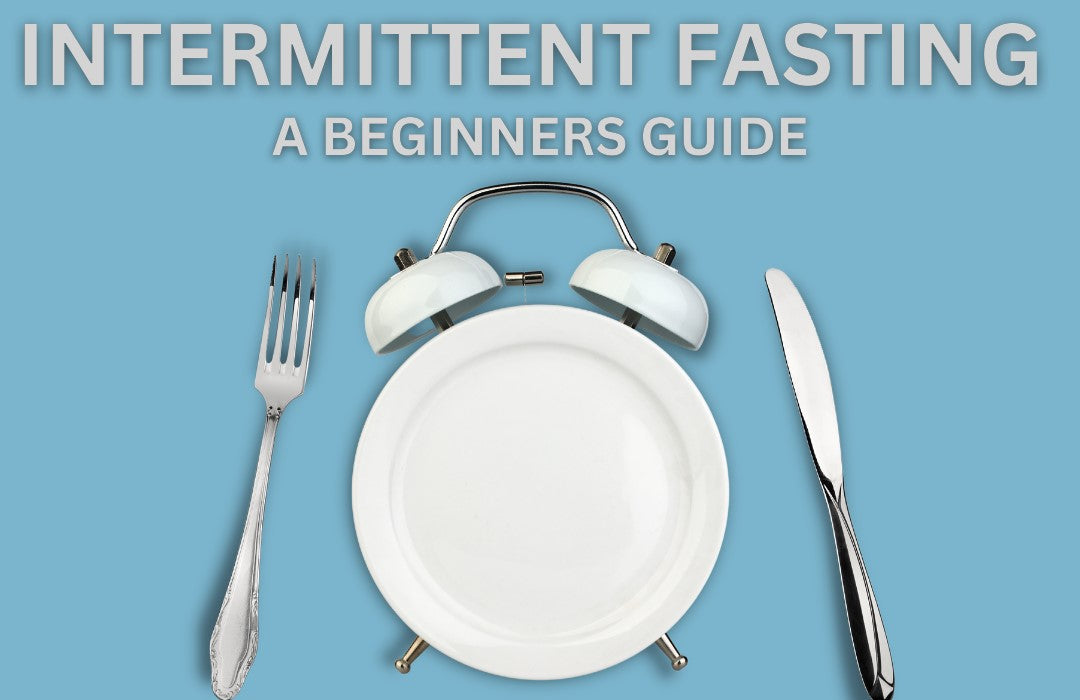
There is so much interest surrounding the topic of intermittent fasting or IF these days, however there is also a great deal of confusion surrounding IF. I hope to clear up much of this confusion and in the process, give you more clarity on the subject and a quick starter guide for those who wish to try it out for yourself.
IF 101
IF is a dietary strategy in which a person avoids the intake of food for many hours each day. The actual time varies depending on a person's goals, individual needs and health profile, however research indicates that most health benefits occur during a fasting period of at least 14 hours each day, and optimally 16 hours or more. As an example, this would equate to a person ending their last meal at 7PM each night and starting their first meal of the day at 11AM the next morning. So, in effect, you would be eating for a time period of 8 hours each day.
Many people begin IF for weight loss, as there is often a calorie deficit experienced with this type of program, but the real benefits in terms of weight loss actually come from IF’s ability to control excess blood sugar levels. Every time we eat—especially high carbohydrate foods—we experience elevated blood glucose, which places our bodies into a fat storage mode for many hours afterwards.
When we fast, our bodies shift from using glucose as its primary energy source to releasing and burning stored fat. Fasting allows insulin levels to drop, and when the body is in a fasted state long enough, the body enters a state of ketosis, where stored fat breaks down into fatty acids, which are then transported to the liver and converted into ketone bodies (beta-hydroxybutyrate, acetoacetate, and acetone), which can then be used as a healthy form of energy for the body and brain.
Obviously weight loss (coming primarily from our fat stores) is a great reason for many to start IF, but IF has the ability to increase our overall health in many more ways than trimming our waistlines. For instance, research suggests that IF can also improve our cellular health, and the promotion of biological longevity.
IF seems to attain better health by activating a process known as autophagy. Autophagy is the body's natural cleansing process in which old, worn or damaged cells are broken down and removed from the body. Autophagy is necessary for optimal health, and has been shown to exert numerous health enhancing effects, help us look and feel better and even reduce the risk of chronic diseases such as cancer, Alzheimer's, and Parkinson's.
Aside from enhancing ones health profile through autophagy, IF has also been shown to increase the production of one of our most powerful pituitary hormones called human growth hormone (HGH), which has documented anti-aging properties and is responsible for better skin, bone, muscle mass, enhanced sleep cycles and also fat loss.
Finally, IF has also been shown to help lower the incidence of metabolic disorders like type 2 diabetes and heart disease by improving overall insulin sensitivity, and lowering blood pressure and cholesterol.
Brad’s 5-step plan for getting started with intermittent fasting
- Begin slowly: It’s critical to ease into intermittent fasting. Begin with shorter fasting periods and gradually lengthen them as your body adjusts. Start by eliminating snacking between meals and not eating anything after 7PM.
- Choose the appropriate fasting method: There are several types of intermittent fasting (IF), including time-restricted feeding, in which you fast for a set number of hours each day, and alternate day fasting, in which you fast every other day. Select the method that best fits your lifestyle and schedule.
- Stay hydrated: It is critical to drink plenty of water during a fast in order to stay hydrated and flush out toxins. Sugary and artificially sweetened drinks should be avoided because they can disrupt the fasting process and negate any benefits by raising glucose and insulin.
- Eat healthy: IF should not be used as an excuse to consume unhealthy foods. Focus on eating whole, nutrient-dense foods such as fruits, vegetables, lean protein, and healthy fats during non-fasting periods and stay away from excess carbs—especially processed ones—as much as possible.
- Consult a medical professional: Before embarking on any new dietary regimen, it is critical to consult with a doctor or a nutritionist to determine whether IF is safe and appropriate for you. Fasting may be contraindicated in people with certain medical conditions, such as type 1 diabetes.
To summarize, IF is a dietary approach with numerous health benefits, including weight loss, improved cellular health, and biological longevity. It is possible to reap the benefits and improve overall health and wellness by following a healthy and well-planned IF program.
References



